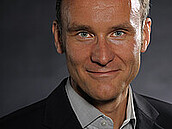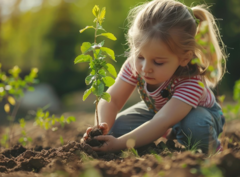Das Paradoxon der Bodenbewirtschaftung: Wissen ohne Pflege, Pflege ohne Wissen ? [22.04.24]
Eine Verantwortung für die Qualität und Funktionalität unserer landwirtschaftlichen Böden (Soil Stewardship) hat sich zu einem Leitprinzip entwickelt, das die von den Landwirten auf ihren Flächen angewandten Erhaltungsmaßnahmen bestimmt. Wissenschaftler haben sich für eine ganzheitliche Sichtweise der Bodenbewirtschaftung ausgesprochen und behauptet, dass sie sowohl auf "Sorgfalt" als auch auf "Wissen" beruht. Eine neue Studie unter Koordination von Prof. Siegmar Otto zeigt eine Diskrepanz zwischen Wissen ohne ein entsprechendes Gefühl der Fürsorge bzw. Fürsorge ohne ein entsprechendes Maß an Wissen auf, und unterstreicht damit die Bedeutung einer ganzheitlicheren und differenzierteren Perspektive in der Bodenschutzforschung, wenn wir nachhaltige Landbewirtschaftungspraktiken fördern wollen.
Originalartikel: Alexander Neaman, Claudia Navarro-Villarroel, Francisca Poblete-Ramos, Nilo Lizardi, Elliot Burnham, Olga Huerta-Salinas, Sarah Zabel, Dmitry S. Ermakov, Mónica Castro, Siegmar Otto (2024) Reconciling the soil stewardship paradox: Knowledge without care, care without knowledge, Geoderma Regional, Volume 37, 2024, e00794, ISSN 2352-0094, doi.org/10.1016/j.geodrs.2024.e00794.
Abstract: Soil stewardship has emerged as a guiding principle shaping the conservation practices adopted by agricultural stakeholders on their lands. Some scholars have advocated a holistic perspective on stewardship, contending that it relies on both “care” and “knowledge”. Our study sought to investigate the degree to which agricultural stakeholders' knowledge of soil science shapes their sense of responsibility and care toward the soil. There is limited prior research that empirically explores the correlation between individuals' soil science knowledge and their degree of soil care. This underscores the originality and innovation of our research. We designed scales to measure individuals' soil knowledge and their sense of soil care. Our sample comprised 150 agricultural stakeholders from geographically distinct regions of Chile (the south, center, and north), enhancing the generalizability of our findings. Our analysis revealed a direct relationship (r = 0.78, p < 0.001) between the theoretical and practical dimensions of soil science knowledge. However, we also observed an intriguing inverse relationship between theoretical soil science knowledge and the degree of soil care (−0.16, p < 0.05), as well as between practical soil science knowledge and the level of soil care (−0.24, p < 0.01). In essence, greater knowledge of soil science did not correlate with a greater sense of soil care, contrary to the expectations set by existing literature. In our study, agronomists, who mostly come from urban areas and currently residing in such environments, showed extensive soil science knowledge but relatively lower levels of soil care. In contrast, participants without professional degrees or with non-agricultural degrees, who predominantly hailed from rural backgrounds and currently reside in rural areas, exhibited greater levels of soil care despite having lower levels of soil science knowledge. These observations shed light on the soil stewardship paradox observed in our study, showing a disparity between knowledge without a corresponding sense of care and care without a corresponding level of knowledge. This study emphasizes the importance of adopting a more holistic and nuanced perspective in soil conservation research, acknowledging the intricate relationship between knowledge and care, as we seek to promote sustainable land management practices.
Keywords: Soil conservation; Soil protection; Land degradation
Mehr vom Hohenheimer Autor:
 | Prof. Dr. Siegmar OttoFachgebiet Nachhaltige Entwicklung und Wandel Aktuelle Forschungsprojekte:
|


